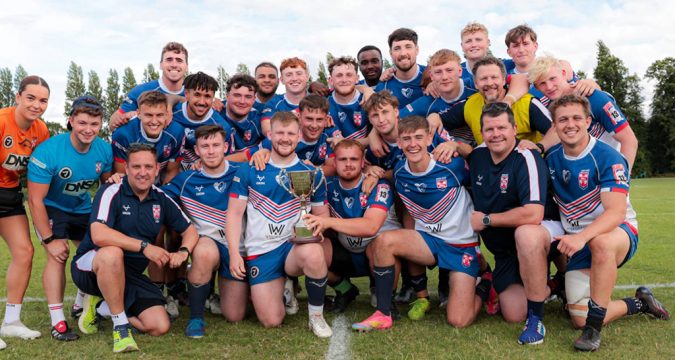 ENGLAND Universities team manager David Butler can take plenty of positives from the recent Student Four Nations competition in which his side, coached by Adam Houston, retained the title.
Houston’s cohort again topped the table, ahead of Ireland, Scotland and Wales, with (as in 2024) a 100 percent winning record.
The triumph followed succe
ENGLAND Universities team manager David Butler can take plenty of positives from the recent Student Four Nations competition in which his side, coached by Adam Houston, retained the title.
Houston’s cohort again topped the table, ahead of Ireland, Scotland and Wales, with (as in 2024) a 100 percent winning record.
The triumph followed succe Reflections from this year’s Student Four Nations
 ENGLAND Universities team manager David Butler can take plenty of positives from the recent Student Four Nations competition in which his side, coached by Adam Houston, retained the title.
Houston’s cohort again topped the table, ahead of Ireland, Scotland and Wales, with (as in 2024) a 100 percent winning record.
The triumph followed succe
ENGLAND Universities team manager David Butler can take plenty of positives from the recent Student Four Nations competition in which his side, coached by Adam Houston, retained the title.
Houston’s cohort again topped the table, ahead of Ireland, Scotland and Wales, with (as in 2024) a 100 percent winning record.
The triumph followed succe 